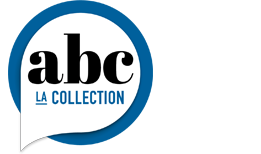Sujet 8À la découverte de nouvelles cultures1 h 30
Polynésie, septembre 2015, Séries L, ES, S
Lieux et formes du pouvoir • Espaces et échanges
Compréhension de l’écrit
10 ptsDoc. 1Following the songlines of the Aborigines

Doc. 2The dead lines of Vietnam

1 Doc. 1. What is the name of the main character the narrator chooses to talk about?
2 Doc. 1. Find the following information about this character in the whole text.
a. age
b. nationality
c. origins
d. brother(s) and sister(s)
e. children
f. job
g. studies
3 Doc. 1. List all the main character’s hobbies (at least 3 elements expected).
4 Doc. 1. Focus on lines 6 to 13. Find the following information concerning the main character’s father.
a. The place where his children were born.
b. The place his wife was from.
c. The place he never reached.
d. The place where he escaped.
e. The place he was from originally.
5 Doc. 1. In your opinion, why were the main character’s parents disappointed with his career choice?
6 Doc. 2. Where does the scene take place (specific location, town and country)? In which year?
7 Doc. 2. Are the following statements true or false? Justify your answers by quoting the text.
a. The narrator spends his days at home.
b. The narrator is the first occupant of the flat.
8 Doc. 2. What is particular about the map on the wall? Find at least three elements in the text.
9 Doc. 2. For the narrator, what was “like trying to read the wind”? (l. 15)
10 Doc. 1 et 2. Maps are mentioned in both texts. What do they suggest about the ways the main characters relate to the country they are in? Develop your answer in about 80 words.
Seuls les candidats de la série L traiteront la question 11.
11 Doc. 1. “Nothing in Arkady’s temperament predisposed him to […] take a conventional job” (l. 15-16). In your own words explain what the narrator means.
Seuls les candidats de la série L LVA traiteront la question 12.
12 Doc. 2. What does the narrator mean, at the end of text 2, by saying there is a “war” where there used to be “a country”?
Voir le corrigé
ou aux acheteurs de livres ABC du Bac
